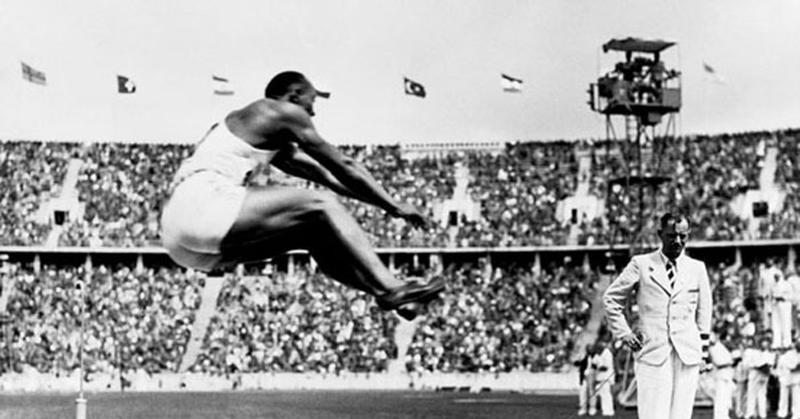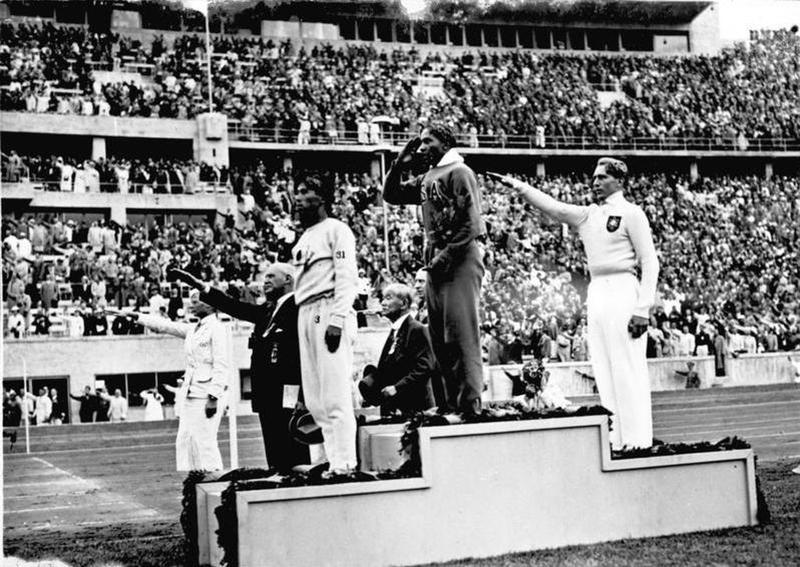Olympic Hero Jesse Owens

Born James Cleveland Owens on September 12, 1913, in Oakville, Alabama, Jesse Owens was the youngest of 10 children, and as the son of a sharecropper, money was always tight. Food and clothing were no guarantee, and the cost of medical care was too high to bear. In fact, Owens later told reporters that his mother had to use a kitchen knife to cut a tumor out of her chest as a child. Owens started working out in the afternoons while he was in middle school, but he was lucky to have a track and field coach who allowed him to train in the morning, as running was his true passion. During the Ohio Interscholastic Finals, he won 75 of 79 events and later set the world record for the 100-yard dash.
Because of his excellence as an athlete, he made his way to the track and field team at Ohio State University, and although he won no fewer than eight individual N.C.A.s. There championships, he was never awarded a scholarship. On May 25, 1935, Owens made his first real impression on the game during a Big Ten conference, where he set four (yes, four) world records in the span of 45 minutes. It was clear to everyone that Owens was a once in a lifetime athlete.

With talent like that, participating in the upcoming Olympic Games should have been a no-brainer, but the International Olympic Committee had already chosen Berlin to host the 1936 Games, two years before Hitler was elected Chancellor of Germany. Had taken. In 1933 the Nazis banned all "non-Aryans" from participating in organized sports, but they reluctantly decided to keep their commitment to hosting an event whose main mission was to bring athletes from around the world together. should bring. In fact, Hitler hoped to use the Olympics to prove his belief that the Aryans were physically superior to other peoples.
As you can imagine, things were tense for the Olympian of color, but Owens was determined to prove that he could handle it. Where he lived, he still only had to stay in black hotels and eat only in black restaurants, so he was well-versed in navigating racist territory. He competed in the 100m, 200m, long jump and 4X10 relay and won a gold medal in each, setting world records. So much for Hitler's theory.

Despite his remarkable achievements, Owens received little respect from the public. He later remarked, "Although I was not invited to shake hands with Hitler, I was not invited to the White House to shake hands with the President." Today, his face will be on the Wheaties box, but soon after his win in Germany, manager Avery Brundage put him on a grueling racing schedule with little pay. When Owens fired Brundage for striking out on his own, his former manager reassured the AAU. The cancellation of Owens' membership effectively removed him from professional racing for good. Owens finished his last race a few months after his Olympic victory.
With his athletic career dead in the water, Owens supported himself by working as a janitor at gas stations and eventually opening a dry cleaning business. At times, he would race as an amateur or even against animals, explaining that "people say it was disrespectful for an Olympic champion to run against a horse, but what should I have done? There were four gold medals, but you can't eat four gold medals." Although he never made much money from his talent, he got the job of giving inspirational speeches, coaching and mentoring the youth. He died of lung cancer on March 31, 1980, at the age of 66.

No comments: